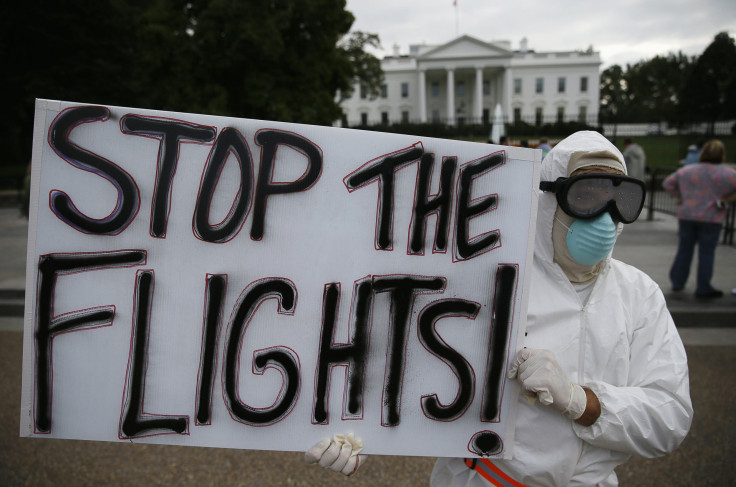A Flight Ban Would Not Stop Ebola From Reaching The US: Report

A U.S.-enforced ban on travel to the United States from the West African countries that have been hardest hit with the Ebola virus would not work, according to FiveThirtyEight’s Nate Silver. On Friday, lawmakers continued to push for a blanket ban on flights from the affected region, but the White House is still reluctant to enforce such a rule.
A FiveThirtyEight data dive that pulled flight information from Jan. 2, 2015, to Jan. 8, 2015, from various travel websites showed that “there are no regularly scheduled direct flights to the U.S. from Liberia, Guinea or Sierra Leone — and very few from other countries in West Africa.”
The research found that most travelers going from a West African country to the United States would have to make a stop somewhere in Western Europe. A connecting flight in Europe would make it nearly impossible to stop passengers from getting to the U.S., as there are hundreds of connections from major European cities to various international airports in the U.S. every day.
The case of first U.S. Ebola victim Thomas Eric Duncan prompted calls for a travel ban. Duncan flew from Liberia to Dallas after having come in contact with the disease and presumably not disclosing that information prior to boarding the plane. Duncan died from the virus, but not before infecting nurses Nina Pham and Amber Vinson. The nurses are now quarantined, but not before having come in contact with a variety of people, unaware that they may have contracted Ebola.
The White House said Thursday that a ban would encourage travelers to hide the fact that they might have been exposed to the disease. It would also render the new U.S. screening measures at airports largely ineffective.
The U.S. has committed up to 4,000 troops to help fight Ebola outbreak that has killed nearly 4,500 people since it began earlier this year. On Thursday, President Barack Obama authorized the National Guard to call up troops and reservists if the Pentagon deems it necessary to fight Ebola.
© Copyright IBTimes 2025. All rights reserved.






















